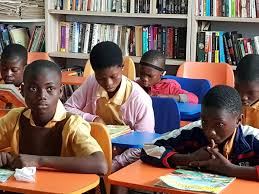IMPORTANCE OF FOCUSING ON FUTURE EDUCATION
The importance of focusing on future education for learners cannot be overstated. As society and technology evolve, the skills and knowledge learners need are changing, making it essential to adapt education to prepare students for a complex, rapidly evolving world. Here are some key reasons why future-focused education is crucial:
1. Adapting to Technological Change
- Technology is advancing at a remarkable pace, and future education needs to keep up. By introducing students to tools like artificial intelligence, data analysis, and automation early, they can develop digital literacy, computational thinking, and adaptability—skills essential for the future workplace.
2. Developing Critical Thinking and Problem-Solving Skills
- With the rise of automation, routine tasks will increasingly be handled by machines, leaving humans to focus on complex, creative, and critical tasks. Future education should emphasize critical thinking, problem-solving, and creativity to help students analyze situations, make sound decisions, and innovate.
3. Preparing for Jobs That Don’t Yet Exist
- According to many studies, a significant percentage of future jobs don’t even exist today. Future-focused education prepares learners to be flexible and resilient, equipping them with transferable skills like communication, teamwork, and adaptability so they can thrive in new and unforeseen roles.
4. Embracing Lifelong Learning
- In a world where knowledge and skills become outdated faster than ever, lifelong learning is essential. Future education can foster a love for continuous learning, encouraging students to stay curious and engage in self-directed learning throughout their lives.
5. Fostering Global Awareness and Cultural Competence
- Today’s interconnected world demands that learners understand and appreciate cultural diversity and global issues. Future education emphasizes global awareness, collaboration across cultures, and languages, which helps students become responsible global citizens and effective communicators.
6. Building Emotional Intelligence and Resilience
- Future challenges will require students to be emotionally resilient, able to handle stress and navigate setbacks with grit. Education that includes social and emotional learning (SEL) helps learners develop self-awareness, empathy, and the interpersonal skills needed to work effectively with others.
7. Encouraging Innovation and Entrepreneurial Thinking
- A future-oriented education encourages students to be creators, not just consumers. Whether they go on to launch startups or innovate within established organizations, a focus on entrepreneurship and innovation helps learners understand how to identify opportunities, take risks, and solve real-world problems.
8. Emphasizing Environmental Responsibility and Sustainability
- The global climate crisis has made it clear that future generations must be equipped to address environmental challenges. Education on sustainability, environmental science, and responsible resource use is essential to empower learners to make informed choices and advocate for a more sustainable future.
9. Enhancing Data and Media Literacy
- With the overwhelming amount of information available today, students need the skills to interpret data, assess credibility, and understand the influence of media. Future education focuses on these literacies, enabling
learners to navigate the information landscape confidently and make informed decisions.
10. Promoting Inclusivity and Equity in Learning
- The future of education prioritizes inclusivity, ensuring every student has equitable access to learning, regardless of background or ability. When education systems embrace diversity and focus on equity, they create environments where all learners can reach their full potential.
In essence, future education prepares learners to not only succeed in tomorrow’s workforce but also contribute positively to society. It nurtures adaptable, globally aware, and innovative individuals ready to take on the challenges of an increasingly complex world.
Read the following story to get a proper understanding of importance of focusing on future education















A very nice work keep it up
ReplyDelete